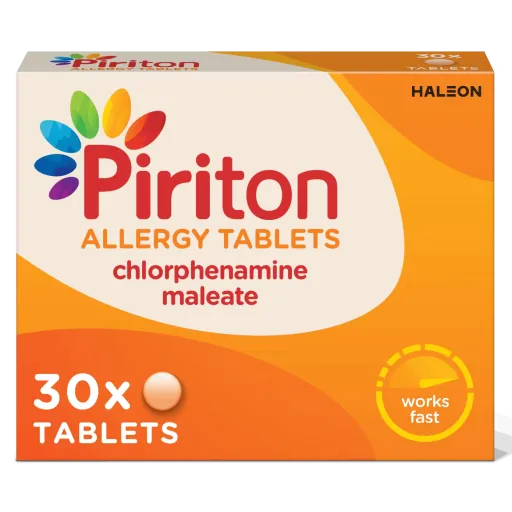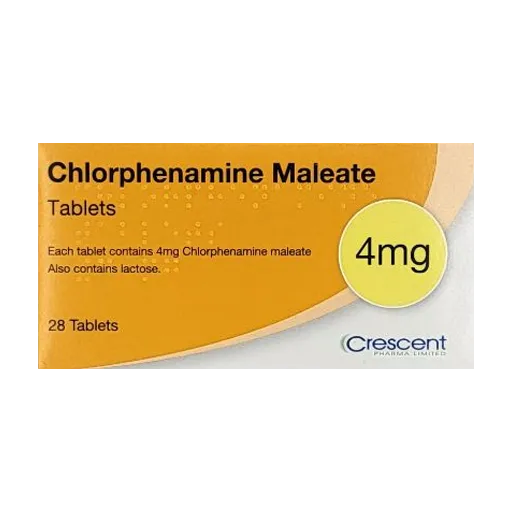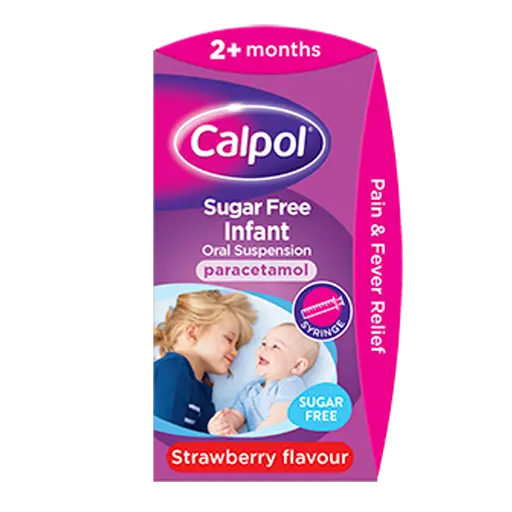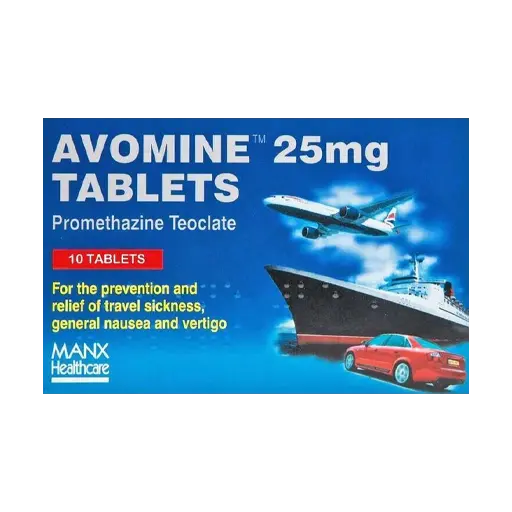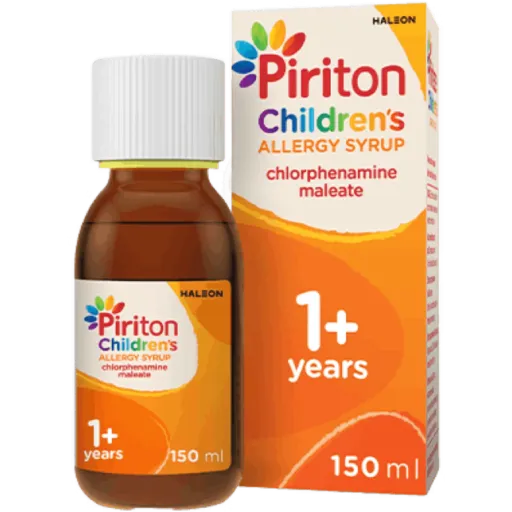
-
Contains chlorphenamine
-
Sedating antihistamine
-
Effective allergy and itch relief
-
Next day delivery available
-
Genuine medication
-
Discreet packaging
Piriton Syrup 2mg/5ml
What is Piriton Syrup?
Piriton Syrup is an effective antihistamine used to relieve the symptoms of allergies and hay fever and is a liquid version of Piriton tablets. As it is a liquid, it is easier to take for children or those who have difficulty swallowing tablets. It contains 2mg of chlorphenamine maleate per 5ml of solution, a first-generation antihistamine that helps reduce itching, sneezing, watery eyes, chickenpox and skin rashes. Piriton is also used to manage allergic reactions to food, insect bites, pet dander, and dust mites. It can be taken by adults and children over 6 years old.
How does it work?
The active ingredient in Piriton, chlorphenamine, works by blocking histamine — a substance released by the body during an allergic reaction. By reducing histamine's effects, Piriton helps relieve common allergy symptoms such as itching, runny nose, swelling, and skin irritation. Unlike newer antihistamines, it may cause drowsiness, which can be helpful for night-time use or severe allergic itching.
How to take Piriton syrup
- Use the measuring spoon provided for accurate dosing.
- Children 1-2 years: One 2.5ml spoonful twice daily (max 5ml).
- Children 2-6 years: One 2.5ml spoonful every 4-6 hours (max 15ml).
- Children 6-12 years: One 5ml spoonful every 4-6 hours (max 30ml).
- Adults and children over 12 years: Two 5ml spoonfuls every 4-6 hours (max 60ml).
What are Piriton syrup used for?
Piriton is commonly used to treat:
- Hay fever and allergic rhinitis
- Skin allergies and itching (including eczema and hives)
- Food and insect bite allergies
- Pet and dust mite allergies
- Cold-like symptoms caused by histamine release
- Itching from chickenpox or other skin conditions
Who cannot use Piriton syrup
They are generally well tolerated and suitable for most people over the age of 1. However it may not be suitable if you:
- Have previously had an allergic reaction to Piriton
- Suffer with glaucoma
- Have problems urinating (peeing)
- Have liver problems
- Have heart problems
- Suffer with epilepsy or other condition that causes seizures or fits
Please note: If you are due an allergy test, this medication can affect your results, stop taking it a few days before your test and let the clinic know you've been taking Loratadine.
Piriton syrup and alcohol
Drinking alcohol while taking this syrup may make you feel very sleepy.
Piriton syrup and pregnancy
Piriton can be safetly taken while pregnant, though it may make you drowsy and a non-drowsy anti-histamine may be tried first.
Piriton and driving
It is important to note that as Piriton is a sedating antihistamine it is likely to make you drowsy, do not drive or use tools or machines.
Piriton syrup and breastfeeding
If your baby is healthy it is ok to take Piriton while breastfeeding. A small amount will pass through breast milk. It is unlikely the tiny amount of Piriton your baby receives from your milk will do them any harm. It is unlikely to have any affect, but if you notice any change in you babys behaviour such as not feeding as well as usual, is unusually sleepy or you have any concerns contact your doctor or health visitor.
Piriton and other medications
It has minimal interactions the main ones to watch out for are:
- Monoamine-oxidase inhibitors (MAOIs) such as Tranylcypromine
- Medicines that can cause the same side effects as Cyclizine as it can make them worse such as a dry mouth, struggle urinating headaches etc.
- Strong painkillers such as morphine
- Alcohol - the anti-vomiting effect can lead to a increase likelihood of alcohol poisoning as well as effecting your breathing and ability to wake up from your sleep.
Please note: As this medication is anti-histamine you should avoid taking any other
anti-histamines, while taking this medication such as Fexofenadine, Cetirizine etc.
You should also be
aware that any herbal or alternative remedies you take may also interact with this medication and
cause side effects. If you are taking any herbal or alternative remedies make sure to mention them to your GP,
or on the consultation form so we can make sure they are safe to take together.
For a full list of
interactions see: Chlorphenamine
interactions.
Chlorphenamine side effects
As with any medication you take, there is a possibility of side effects occurring. Most people do not experience any side effect and if they do they will usually be mild. The most common experienced side effects include:
- Nausea (feeling sick)
- Drowsiness
- Fatigue (feeling tired)
- Headaches
- Dry mouth
- Dizziness
Some steps to help with side effects include:
- Nausea - stick to bland foods until you get used to the mediciation
- Headaches - make sure you are drinking plenty of fluids
- Dry mouth - try chewing sugar free chewing gum
- Dizziness - lie down until the feeling of being dizzy goes away.
Side effects should go away as you get used to the medication, if any of the side effects persist, you can try
an alternative anti-histamine or contact your doctor for advice.
If you experience a fast or irregular
heartbeat, contact 111 or your GP for further advice.
If you would like to see a full list of side effect
please refer to the SPC below or look in the patient information leaflet.
Piriton vs Chlorphenamine - what's the difference?
Piriton is the branded version of chlorphenamine maleate, a widely used antihistamine. Both contain the same active ingredient at the same dose (4mg), and both are equally effective at treating allergy symptoms. The main differences are:
- Piriton is a well-known brand name and may be slightly more expensive
- Chlorphenamine is the generic version and may be available at a lower cost
- Both are equally safe and effective, and can be used interchangeably
Some people prefer to stick with the branded version for consistency, while others are happy with the generic.
Piriton Alternatives
There are other alternatives you can try if you find this medication doesn't work for you:
- Chlorphenamine - Generic version of Piriton
- Piriton tablets - Tablet version of Piriton
- Loratadine tablets - Non-drowsy antihistamine
- Fexofenadine tablets - Non-drowsy antihistamine
- Cetirizine tablets - Non-drowsy antihistamine
It is important you do not take more than one type of antihistamine in a 24 hour period.
You can also try a nasal spray alongside your Chlorphenamine to help alleviate symptoms:
- Beclometasone nasal spray - Steroid nasal spray
- Avamys nasal spray - Steroid nasal spray
More Piriton information
For more information on Piriton, you can visit the Piriton
website.
You can also find more information on the NHS website.
Frequently Asked Questions
Does Piriton make you drowsy?
Yes, Piriton is a sedating antihistamine and may cause drowsiness. It's best to avoid driving or operating machinery after taking it, especially with your first dose.
Can I take Piriton with paracetamol or ibuprofen?
Yes, Piriton can safely be taken with painkillers like paracetamol or ibuprofen unless advised otherwise by a doctor or pharmacist.
Is Piriton suitable for children?
Yes, Piriton can be given to children aged 6 and over in tablet form. For younger children, Piriton Syrup may be more appropriate. Always follow age-specific dosing instructions.
Can I take Piriton daily?
Piriton can be used daily for hay fever or long-term allergies, but it's best to use the lowest dose for the shortest time. Consider non-drowsy antihistamines for regular use.
